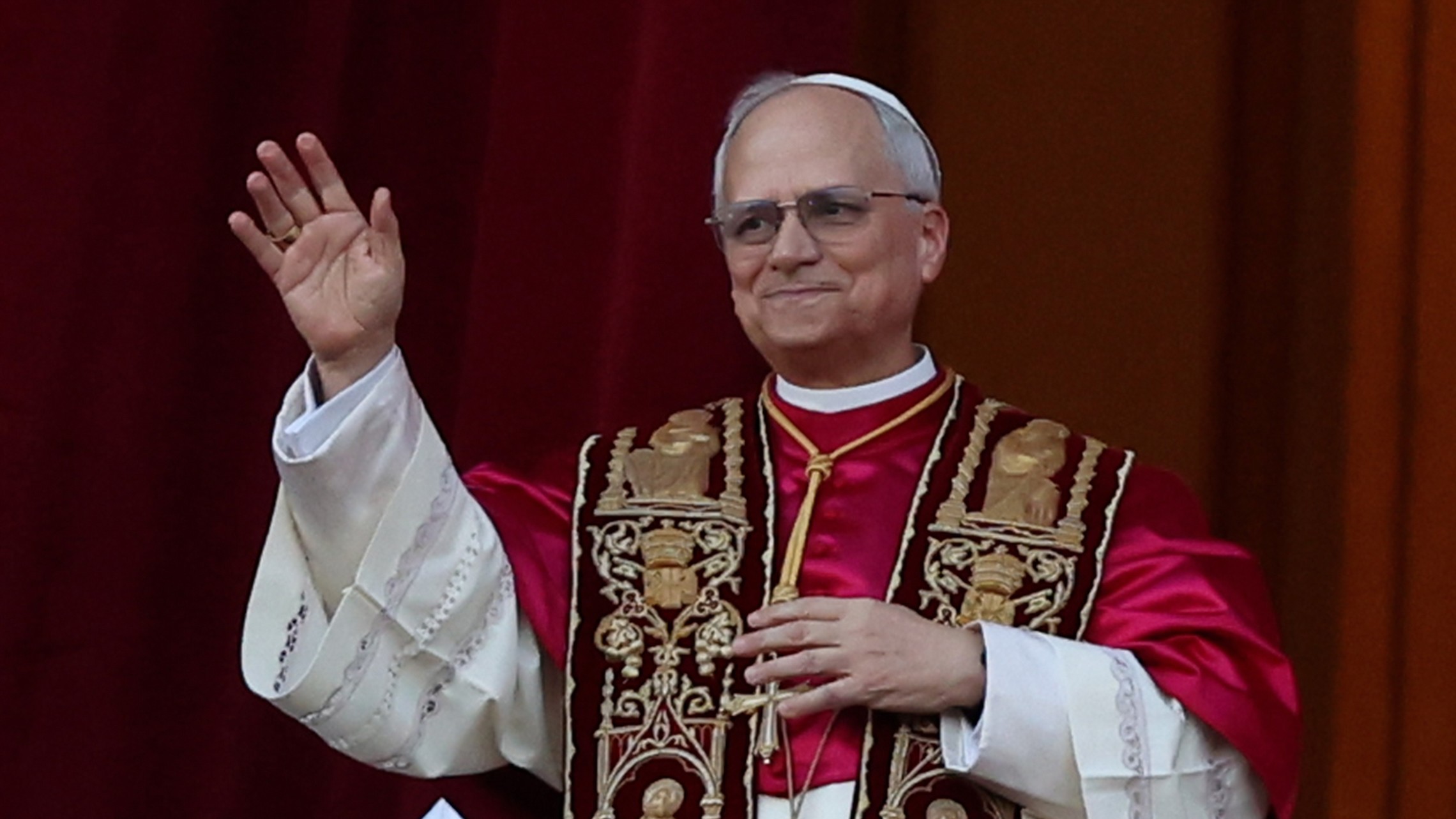The Return

by Fr. Frederick Edlefsen
From clear skies, Johnny stared blankly downward to the California coastline, watching whitecaps crash into gray cliffs and aridly green landscapes, from the window of the World Airways DC-8 eastbound to Travis Air Force Base. That was the summer of 1968. From Da Nang, Vietnam via Yakota, Japan, the plane was taking men home from war. Joanna, one of the stewardesses, shed tears as she buckled up in the jump seat near the cockpit while the plane descended.
She recognized Johnny from his trip to Vietnam two years prior, when she fell in love with his farm-boy earnestness and playful innocence. He was reserved yet comical and physically matured by farm work. Drafted at age twenty-two in 1966, he boarded the plane at Travis AFB en route to Da Nang with a stopover in Yakota. That was Joanna’s second run to Indochina, herself noticeably pretty, clad in dirty blonde, short, wavy hair and blues eyes, carrying herself with southern gentility and a delicate grin. She hospitably called the boys “honey” or “babe,” in the manner of southern women. But she didn’t say that to Johnny. At first, she was more reserved with him, for reasons of a deeper affection. After a few hours in the air, she played along with his guy games. He wouldn’t let her pass by without jokingly asking for something to get her attention. “Please git me another a’ those there tea biscuits?” At first she’d get them. After his third request, she joked along, coming back with a pile of napkins. He smiled and boyishly tucked them in his collar and between all his shirt buttons and asked for more napkins. Then she brought him a beer, which he downed and then requested a lemonade. She brought him a lemon, which he ate, rinds and all. It was a flirtatious cat-and-mouse game. He made no come-ons or untoward remarks. Johnny was clean and unpretentious, full of Kansas-corny humor.
She wept when he de-boarded the plane in Da Nang. Would he return? A newbie in the business of taking men to war, that’s the only question she asked herself. Over the next two years, Joanna did Travis-Yakota-Da Nang round trips about three times a week. She cried often when the men deplaned in Da Nang. Among the returnees, however, she often sensed a cloud of grief, sobering their homebound eagerness. She learned that there’s more to coming back than “coming back.” She had more questions. If Johnny returned, would war have changed him? Would he keep his innocence? His humor? Would he still love her?
In the summer of ’68, Johnny boarded her plane homebound, as fate would have it. The delicate buds of love had indeed been stunted by war, like a sudden deep freeze in spring. A boy cannot see tragedy and remain a boy. There’s no turning back – no “going home” – once it looks a boy in the eye. Johnny’s tour of duty showed him a dark side that no one, let alone an innocent youth, is prepared to see. At first, he consoled himself with thoughts of Joanna. He occasionally sent her letters addressed, “Joanna Pickett, World Airways.” She received them. The more combat Johnny saw, the less Joanna’s sweet memory cheered him. He was shaken by the mutilation of his best friend’s arm and face by a grenade. Two other close buddies had been killed. Another went mad and tried to kill himself, a quiet boy from Colby, Kansas, not far from his dad’s farm near Brewster. If those incidents weren’t enough, the sight of a screaming infant clinging to his dead mother’s neck, in a village they captured, haunted his memory. He was sickened by guilt – or something worse than guilt, if there is such a thing. Though it wasn’t his doing, he confessed it to an Army Chaplain priest as if he did it himself. The lines between right and wrong, guilt and culpability, dissolved into a muddled and hellish vacuum.
When Joanna received his letters, she read between the lines. His farm-boy innocence was challenged amidst the screams and cries of cruelty. In his letters, he told her what he saw. Joanna feared for Johnny and prayed for him, especially when the letters stopped coming. Back home in Oakland, she knelt in church after Mass and prayed for peace. She’d often return to her apartment alone, pick up her guitar and sing “Where Have All the Flowers Gone” or “Yesterday.” It was the times.
When he boarded her plane in Da Nang in the summer of ’68, they recognized each other as if no time had lapsed. Their eyes locked as he ascended the gangway. But he was quiet and introspective. His eyes were vacuous. She smiled ebulliently, not concealing her excitement. He too was joyed to see her – and he loved her – but something had died within, at least on the surface. His love was trapped in a prison of grief and troubling memories. Within seconds, she sensed this and her excitement gave way to an anxious sting – like a frozen dagger in the heart – of a joy lost too quickly. When he settled into his window seat, next to two guys whom he didn’t know, he thought of her. But he didn’t want to talk or joke. More than 24 long hours later, Johnny watched the California coast beneath the plane approaching Travis AFB.
His dad, Marcus Stenson, didn’t know when his son was returning, but he figured it must be soon. Johnny’s last letter home was written seven months prior, eulogizing his lost buddies. But he wrote neither of the infant and his dead mother nor of his returning. Johnny was Marcus’ only boy. His wife passed away shortly after Johnny was born in 1944. Marcus and Johnny worked the farm together, starting when Johnny was five. He was a strong and faithful hand to his father, pitching in like a grown man even as a boy, never complaining. He operated the combine at age nine, while a paid farmhand paralleled it in the pickup. When he turned eighteen, he paid for college with cash jobs.
As he deplaned, he stared dully at Joanna and furtively said, “Goodbye.” He was sad to leave her. But he felt sorrow upon sorrow and didn’t know how to carry it. He left her no phone number or address. When he descended the gangway, it seemed to Joanna as if he was getting off in Da Nang. Would she see him again?
He later took a bus to San Francisco and checked into a hotel downtown. He wandered around the Warf and was bemused by all the longhairs. The city was as foreign to him as Da Nang. That night, he went to a bar, hoping to find a girl for the night. He wasn’t one for womanizing. But his unrelenting and lonely grief invited him down a spiral of darkness, like a whirlpool pulling him down from light and life. But in a providential twist of fate, his grief got in the way of that too, despite the beer. He returned to his hotel alone and went to bed. Though he wasn’t conscious of it, his Guardian Angel knew how to apply those subtle graces to which he’d respond, even in his greatest pain.
The next morning, Johnny caught a Denver-bound Greyhound. In Denver, he caught another bus to Colby, the closest bus stop to his farm outside of Brewster. Shortly before Colby, he told the driver to drop him off on KS 184. From there, he hiked two miles north and another mile west down a dirt road to his dad’s farm. With his army issue duffle bag strapped over his shoulder and dangling behind his back, the wind blew through the undulating wheat fields, kicking up dust as Johnny walked into an orange sunset. He gazed upon the familiar white farmhouse, the barn, the truck, the tractor, the combine and some cattle and chickens as he approached home. He felt a mix of relief and sadness. He stopped to contemplate home, and he cried deeply again. “What’ve I done?” His memory recalled that child clinging to his dead mother’s neck. “Dear Jesus! Forgive me!” He walked into the house. It was empty. He tossed his dusty duffle bag onto the couch and sat down. His eyes passed over old photographs of his mother and father and his boyhood. He recalled his childhood and farm work in the lonely silence of the empty living room. He was hungry but couldn’t bring himself to the kitchen. He lit a cigarette and went upstairs to his bedroom, gazing at the old Denver Broncos pennant above his bed. He went downstairs to get his duffle bag as his dad walked in the back door and encountered his son standing on the stairwell’s bottom step. They gazed at each other for a few seconds, like speechless strangers. Then Marcus grabbed his son’s neck with his right arm and embraced him in tears. He kissed Johnny three times and signed a little cross on his forehead.
“Where’ve you been, son?” No response. Johnny stared at his dad, bloodshot. He put his face on his dad’s shoulder and wet the shirt with tears. “Let me fix ya’ dinner. Let’s have a beer.” Johnny took the beer but said nothing. “Ya’ happy to be home?” asked dad, hoping Johnny would say something. Silence. Dad set a place for each of them and began to prepare dinner. “Tell me what ya’ saw.” Tom Paxton was singing “My Son, John” on the radio. Without touching his beer, Johnny abruptly left his dad, went upstairs to his room and shut the door. He looked tearfully at framed picture of St. Joseph holding baby Jesus and a lily. Joseph looked at Johnny. Joseph had watched him for as long as he could remember – by moonlight while laying in bed, while doing homework, while playing cards with friends, while listening to baseball on the radio. It all came back to him. He closed his eyes and heaved weeping again. His voice broke and asked the saint, “Where are they?” Silence. “Tell me.” Dad quietly opened the door and stood by his son. A silent minute passed. “You don’t have to tell me nothin’ ol’ boy, if you don’t want to. Come and eat with your paw.” He put his calloused hand on Johnny’s shoulder and said, “Tomorrow’s Sunday.”



